Environment
-
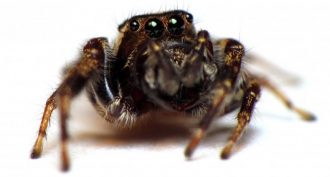 Environment
EnvironmentInsecticide can change a spider’s personality
A chemical meant to kill moths affects the behavior of some spiders. It alters the spiders’ ability to capture prey — including those moths.
-
 Agriculture
AgricultureOrganic food starts to prove its worth
Organic food often comes with a higher price. But research is showing that food grown this way can be better for the environment — and possibly for us.
-
 Brain
BrainTo protect kids, get the lead out!
Lead poisons hundreds of thousands of children. In Chicago, experts show how the toxic metal hurts test performance in school.
-
 Environment
EnvironmentThe heat that keeps on giving
Burning fossil fuels generates heat and carbon dioxide. That pulse of heat is quickly exceeded by the warmth that carbon dioxide traps in Earth’s atmosphere.
By Beth Geiger -
 Earth
EarthToo hot? Some peaks offer climate migrants lots of land
As mountain climates warm, species may actually gain ground as they migrate up to cooler sites, a new study finds.
By Beth Geiger -
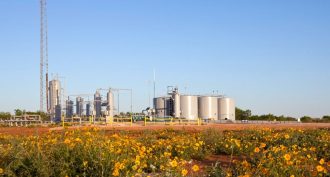 Environment
EnvironmentScientists Say: Fracking
Liquid fuel sources such as natural gas and petroleum form deep underground between layers of rock. To retrieve them, engineers often use a technique called hydraulic fracturing, or fracking.
-
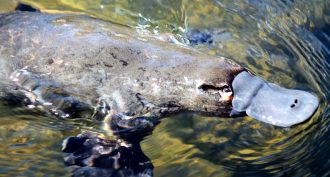 Animals
AnimalsCats and foxes are eating up Australia’s mammals
Since the arrival of Europeans in Australia, a startling number of mammal species have disappeared. A new study puts much of the blame on cats and foxes introduced by the early settlers.
-
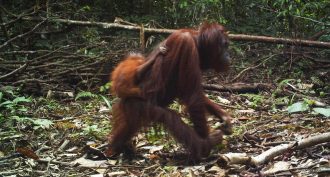 Animals
AnimalsOrangutans take the low road
Cameras spotted orangutans walking down logging roads to get around. That may be a good sign that they can adapt to changes in their woodsy environment.
By Ilima Loomis -
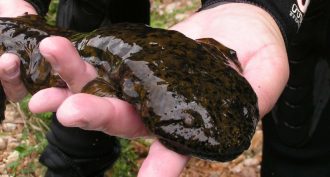 Animals
AnimalsHellbenders need help!
Hellbenders already face threats such as habitat loss, pollution and disease. But climate change could make matters worse. And the problems facing hellbenders could spell trouble for more than just these giant amphibians.
-
 Environment
EnvironmentAir pollution can mess with our DNA
New research suggests a type of air pollution — diesel fumes — can affect your health. It inappropriately switches some genes on, while turning off others.
-
 Environment
EnvironmentNature documentary puts people in the picture
Many nature documentaries cut people out of the frame. A new series aims to show how we are entwined with our environments.
-
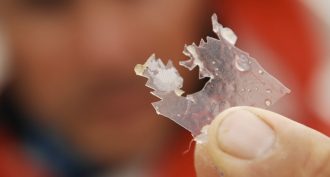 Environment
EnvironmentPlastics at sea create raft of problems
About 5.25 trillion pieces of plastic float in the world's oceans, a new study finds. That's a problem. This 269,000 tons of plastic can choke, entangle and poison a wide variety of sea creatures.